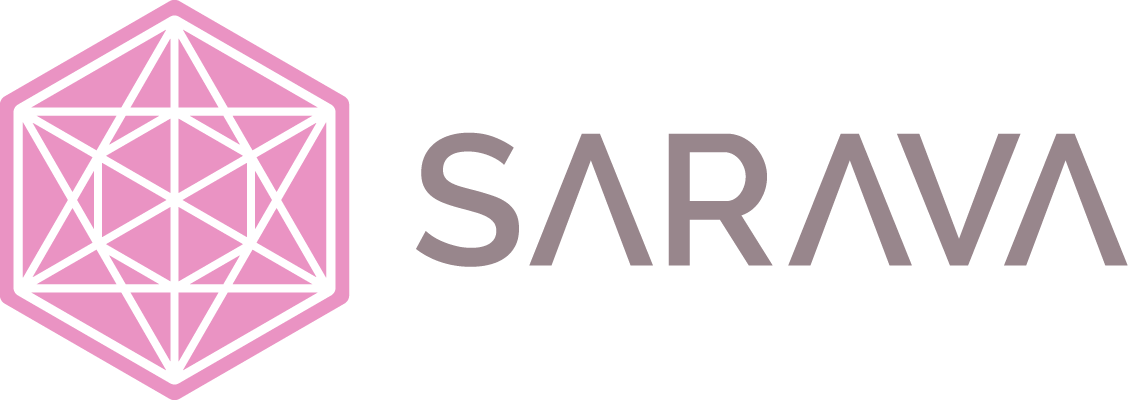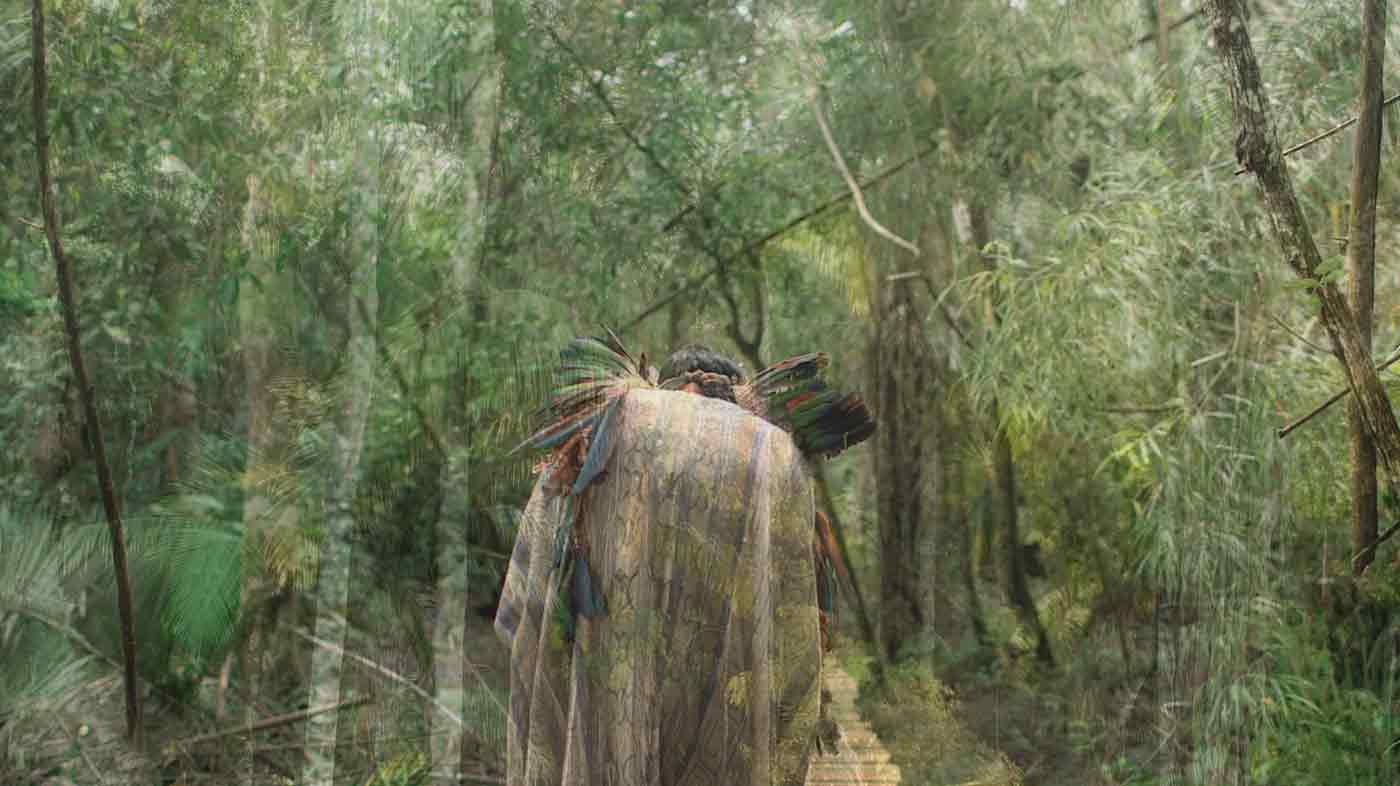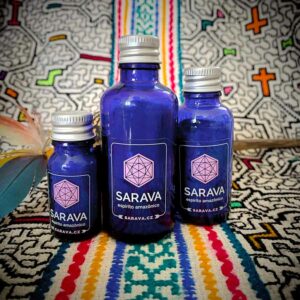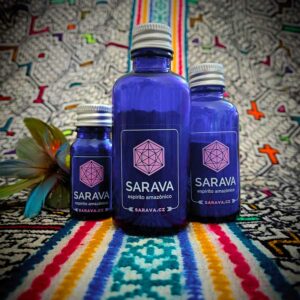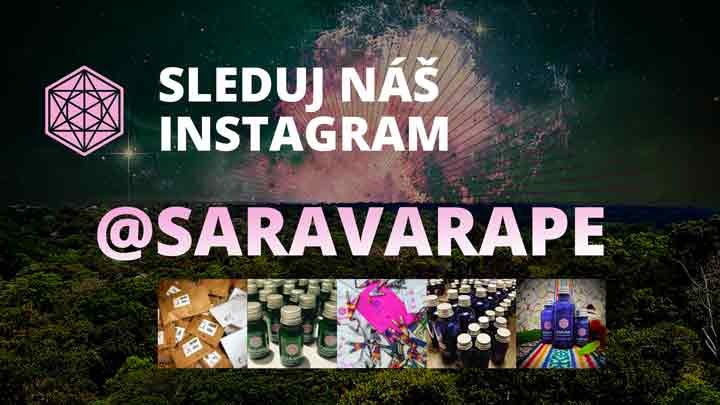Interview with film director Lara Jacoski on how Amazonia transforms the spirit
In the north of Brazil, in the state of Acre, lives one of the country's indigenous tribes, the Huni Kuin. This tribe is increasingly popular in the Western world, for its songs, its culture of so-called "alegria!" everyday joy, and its association and work with psychoactive plants - such as the Ayahuasca drink, or Rapé (a form of tobacco use as a powder that is blown into the nose).
Patrick Belém and Lara Jacoski have travelled the world making various short films bringing to light the diverse cultures found in different parts of our planet. During their travels, however, a call came to return to their native Brazil and turn their attention to the national wealth, to the wisdom of the indigenous tribes.
This interview with Lara Jacoski provides insight into the experience of making the film Eskawata Kayawai: The Spirit of Transformation, which is now touring the world and will be screened in the Czech Republic in collaboration with the Sarava Foundation.
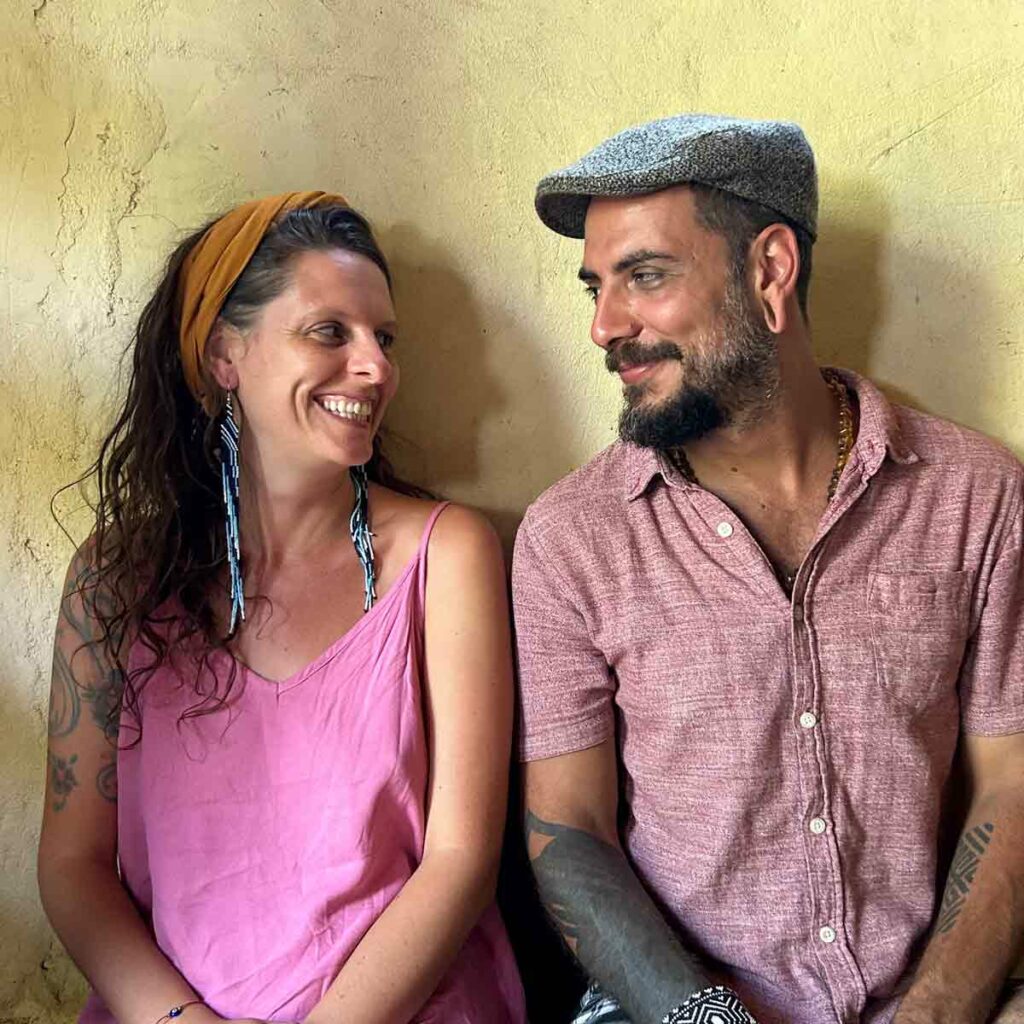
What does Eskawata Kayawai mean, why did you choose this title for the film?
Eskawata Kayawai is a word in Hatxa Kuin, the traditional language of the indigenous Huni Kuin people. If you were to ask someone from the tribe the same thing, they would be able to talk for at least an hour about each of the words, because they perceive not only the depth of their meaning, but also the vibration they carry. Honestly, there is no objective translation, neither in Portuguese nor in English. The closest translation we have come to after interviewing pajém (shaman-medicine-healer), indigenous teachers and linguists is the subtitle of the film "Spirit of Transformation". We chose this title because it reflects the spirit and direction of Ninawa Pai da Mata, our protagonist and spiritual leader of the village Novo Futuro (New Future). Ninawa is literally transforming the reality they lived before, which was plagued by Western culture and oppression from the colonizers. Along with others, they have decided to return to tradition, choosing to live a fuller life that reflects their identity and indigenous culture. The film shares this story, of tradition and the values they revive, and the hope that fulfilling this vision brings, even for our Western world.
What brought you to the rainforest? Did you intend to make a film, or how did it happen?
Coming to the rainforest was an answer to the call to return to our roots. Me and Patrick Belem, with whom I co-directed the film Eskawata Kayawai - The Spirit of Transformation, have been collaborating under the auspices of the film company Bem-te-vi Produções, since 2017. That's when our five-year journey of filmmaking together began.
We have lived and worked in Thailand, India and Bolivia, also in Cambodia, the United Kingdom or Morocco, with the mission to enter and learn from different realities, to serve as a bridge for the voice of minorities or non-mainstream actors towards the general public, this to make these voices visible and accessible. We have traveled with our cameras to traditional communities that live in alternative ways and respect Mother Earth's values, offering our tools to share their realities and messages.
To come and learn from our First Nations became our mission, and like everything else we had lived and captured before, it happened very naturally - we set our intentions and the path began to unfold before us.
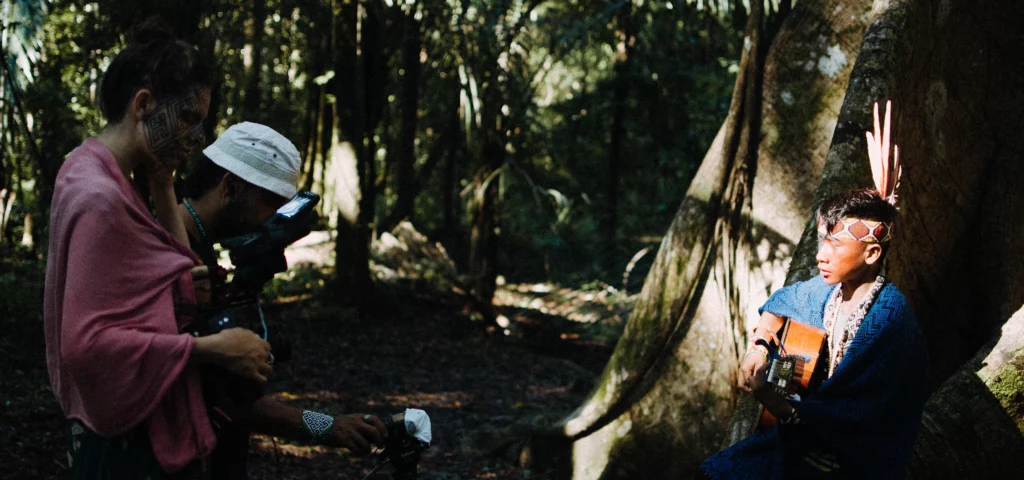
So how did it start? I think that getting to the indigenous tribes, the Indians, is not exactly easy.
Only Patrick visited Huni Kuin for the first time. He had been walking the spiritual path for some time, "sitting" with various shamans, and one day after a ceremony where Ayahuasca was being used under the guidance of Sia Huni Kuin, he felt a very strong call to come and visit them, and of course he brought his camera with him.
And then he just started filming?
We are used to working by offering the community a camera to film what the residents themselves are willing to share. Spiritual leaders started coming to him, wanting to share their truth. After a very unique experience of spending 15 days in Novo Futuro Village for an ayahuasca conference in Caucho, he returned with 10 hours of interviews. When we sat down to watch the material, we realized almost immediately that a treasure had been placed in our hands and that we needed to honor it in the best way possible. We realized that this was the first time that Huni Kuin had chosen to share their story, to really open up and share their culture and message to the "western man" on camera, and so we realized our role, our task.
What was the creative process like? How long did it take?
The entire film took 6 years to complete. For the first 3 years we produced the film, we made several trips to Humaitá, the territory of the Huni Kuin indigenous tribe where the film was set, and also to Jordão, where we connected with other indigenous people from Brazil such as the Xavante, Kuikuro, Karajá, Guarani. Gradually we deepened our understanding of what Brazil was before Brazil.
The last 3 years have been devoted to post-production. It is important to mention that from the beginning we had no idea that we were making a feature film. The financing was done independently through crowdfunding, and just getting the funds required a lot of work. It was also our first contact with the Huni Kuin people, and we wanted to make sure that we made this film in the most respectful way possible, that we went at their pace, their way. And so the film evolved bit by bit. Thirdly, during the post-production process, a pandemic broke out, which gave us the time to spend days and nights with the material we had collected and study it in depth.
I edited the film when I moved to the Atlantic Forest in southern Brazil, living among the mountains, trees, waters, with the wind and birds, planting crops, sharing life with the community, and living the values I stand for, which was deeply healing and certainly helped me edit the film into its final form.
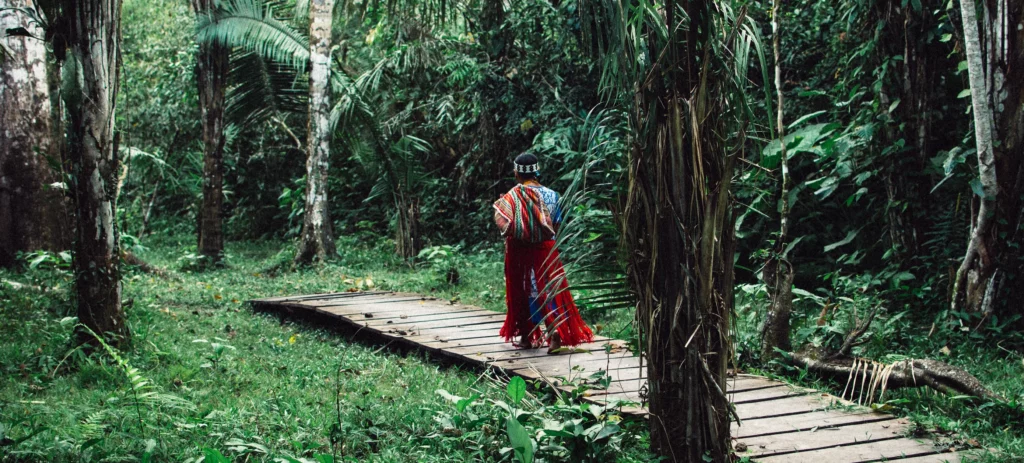
This also sounds like a great opportunity to integrate the rainforest experience in depth. Did your travels to the Amazon change you as a person?
That's for sure! Amazonia changed my life. There, one is surrounded by ubiquitous life that pulsates, vibrates, grows, changes and forms into the magnificent Amazon rainforest. I was struck by its (literal) immensity, power and freedom, as well as the proximity of the memory of everything and everything that has ever lived.
I had the impression that regardless of one's beliefs, the knowledge of our essence is available, and it is possible to connect with this knowledge at any time, here and now.
It was as if the pure DNA of the earth was floating in the air, its wisdom going back to the very beginning of existence. And also in the water, in the design of every single leaf, in the center of the trunks, in the raindrops, in the rays of the sun, and also, in every expression and feeling of gratitude, as if we could listen to our highest melody.
The mystery is constantly available right before our eyes, but the way we choose to live, in the big cities, does not allow us to see it.
When I visited the Brazilian rainforest, I felt a deep sense of home, security and inner peace - which is a bit paradoxical, given that at almost every turn you can be bitten, pinched, stung... But it was very tangible that in the heart of the rainforest you are somewhere closer to yourself, didn't you think?
As we approached the heart of the Amazon rainforest during the four days of boat travel that preceded our arrival in the indigenous village where I was staying, I felt more and more that I was entering my own heart and contact with spirit.
In my experiences in the Amazon rainforest and other lands, I realized that natural life allows and makes available a connection with the creative source, making it possible to see, to listen, to understand beyond what is seen, beyond what is known, and to create space within us, to expand and stretch our being, which will one day reciprocate by unmasking (from the rigidity of our being and our minds) to open the wisdom of the soul that is intertwined with the knowledge of Earth, Heaven, the Universe and Creation.
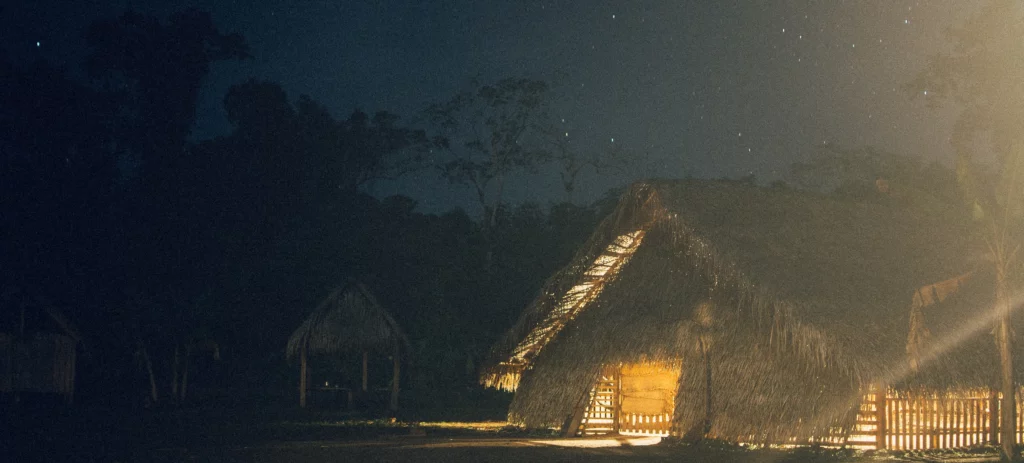
Repeatedly visiting a culture so different from our own, the Western one, usually breaks down inveterate concepts and beliefs. Is there something about the way of life of the Brazilian natives that "gave you a hard time"?
For example, it took me a while to really start to understand their concept of time. I was trying to implement my ideas and plans that I had made for my precious time in the forest. But whenever I asked: "What time?", it was as if I was confirming the loss of the conversation.
They say, "Time will heal it," and I felt the magnitude of that saying to the core in the rainforest. Throughout my travels across other cultures, I have learned to remember the importance of leaving my loaded suitcase at home before meeting others, as it limits my ability to see, listen and understand beyond words.
Back in the village, it was only when I realised this, when I threw away my film plans and opened up to the manifest that the real magic came and the film we were making began to take shape and brightness.
I think that's a great lesson for life. Let things go, but be ready to act when the time comes.
I was also able to see some of my concepts. One of them concerned the learning process - we have professors who have solid knowledge and are in schools to impart that knowledge to students sitting in uncomfortable chairs, often passing out from fatigue under the load of mental information they have been exposed to in such a short time. In the world of the tribe I visited, teachers are many - grandmother and grandfather, father and mother, uncles and aunts, relatives, who are all, by the way, from the perspective of one big global family. The elders of the tribe are the holders of knowledge and wisdom and they pass it on, they teach others, they teach each other.
I read somewhere that the grandmother of one is the grandmother of all. Everyone can relate to her as their grandmother and everyone can come to her for knowledge - to follow her and watch her do what she does.
That's why my concept of teaching needed revision. My idea of teaching where a teacher, mother, or someone who understood the subject stopped to teach exactly how she did and/or learned, perhaps with the help of a book that also contained knowledge of how someone else did and/or learned it. In the rainforest, teaching is life. Life happens and one learns from another by simple observation. If my grandmother has the knowledge of working with the medicinal plants I want to embrace, I approach her and accompany her to see how she does it, understanding the knowledge of this being without words. This is how the transmission of knowledge works, by observing, and first by observing our surroundings, our home, mother nature, our great teacher.
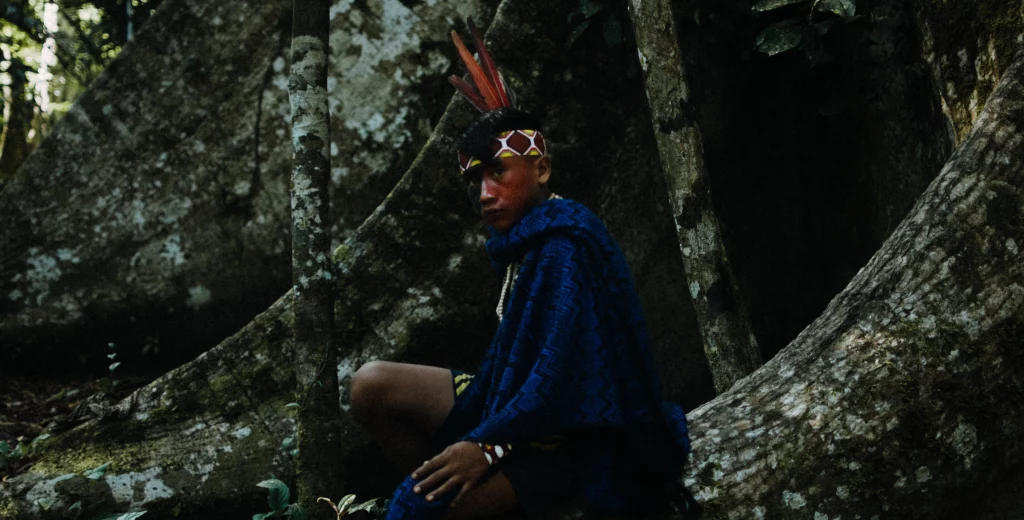
Concepts of what life should look like and how we should live it are drilled into us from an early age. In our part of the world we have lost our connection to both nature and our roots, why do you think we need to preserve it?
We were born into a reality where we were presented with a way of looking at the world and a way of living in it. We live in a time where everything is planned, anticipated, and where possible outcomes are prevented. From living in the rainforest and reconnecting with the knowledge mediated by nature, every day I discovered a concept that was not of my nature and I was given the opportunity to shake it off.
As time goes by, I open up more and more spaces within myself, and I try to listen, feel, perceive with all my senses, organs and the smallest part of my body, in addition to my mind.
Previously we were able to read symbols, manifestations of nature, as messages through which existence communicated with us. Today it seems as if at some point this wisdom found between heaven and earth ceased to be understood by the masses and this ancient language began to decline. But it is our main language, everyone can communicate with it, a language that does not distinguish race or borders, our universal language.
Standing in my ration, I ask: how can I integrate a language I have forgotten I can speak?
It is hard to believe that remembering is so easy, all kinds of forgotten knowledge are available, whether those of our ancient ancestors, contemporary or ancient.
Going back to our roots is not impossible, we can see this in the history of our indigenous peoples such as the Huni Kuin of the Eskawata Kayawai film who were forbidden to practice their traditional culture from the time of the invasion, and although it took them time, after some time they began to recover and practice the wisdom of their ancestors.
To connect with the field of this wisdom, we need to be available (here and now), open and empty. Our general problem is that we are very often overwhelmed and fearful. We are used to living fast, worrying and being busy with our education, always taking classes, always studying and working more to pay for our studies...
In a way, we thirst for information, we chase after self-knowledge, we want to be recognized by the world based on our actions, and we perceive schisms in approaches to understanding our history, understanding where we came from and where we are going. In all of these areas, we have ultimately put aside our main teachers: the living human beings on planet Earth. And this is where we are right now, whether we perceive that we are experiencing one life or many, that our spirit is evolving or merely an earthly manifestation - the earth school is the school of life, and the more we are integrated with it, the more the mystery of existence unfolds.
And in which direction does existence now open up for you? What other project has called you?
With the completion of the film came the realization that there are only a handful of elders left in the Huni Kuin tribe, and the same is true of other tribes. We started getting calls from different tribes in Brazil and Latin America to work together.
The line that connected them all was: we have the last elder alive. The original values are slowly disappearing with the last generation born into a world that was built on them. Subsequent generations have already been born into a reality environment "squeaky clean" in Western ways. The older ones pass on their wisdom only orally and by their presence, they have an awareness of ancient wisdom that we could lose access to and end up spinning in circles, banging our heads against the wall without the ability to find ourselves.
The last living libraries are still alive and we have heard the call. The Living Libraries series documents the ancient knowledge of the indigenous peoples of Latin America in order to preserve endangered wisdom for future generations and humanity as a whole. The ethnographic project is realized through audiovisual, photography and written form. We also target the younger generation by sharing workshops on how to use social media, their phones and cameras to awaken their interest in their traditions and culture.
The project is urgent because more and more of our wise relatives are under threat and we are all losing our last grandparents.
Web movie: https://www.eskawatafilm.com/
